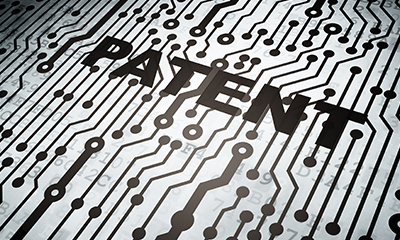Patent your Software ?
Originally posted at Charleston Digital Corridor
Case study: Enfish, LLC v. Microsoft Corporation
You may be able to patent your software after all
Mark Twain famously said “The reports of my death have been greatly exaggerated.” The same may be true of patents on software.
After the Supreme Court’s holding in Alice Corp. v. CLS Bank International in 2014, patents for software appeared to be in doubt. The issue at that time was whether claims directed to a computer-implemented, electronic escrow service for facilitating financial transactions were patent eligible. The patent claims were held to be invalid because the claims were drawn to an “abstract idea,” even though the processes were performed by a computer.
Since then, most patent claims directed to computer implemented processes have been held to be directed to an “abstract idea” by the Courts, even though the Supreme Court has not established a definitive rule for determining what constitutes an “abstract idea.” As a result, most computer implemented methods, such as those methods implemented by software, have been found to not be eligible for a patent.
However, on May 12, 2016, the Court Appeals for the Federal Circuit (which hears all appeals from trial courts involving US Patents) stated in Enfish, LLC v. Microsoft Corporation, that there is “no reason to conclude that all claims directed to improvement in computer-related technology, including those directed to software, are abstract” are necessarily ineligible for patent protection.
Further, the Federal Circuit looked at “whether the focus of the claims is on a specific asserted improvement in computer capabilities…or, instead, on a process that qualifies as an ‘abstract idea’ for which computers are invoked merely as a tool.” The Court found that the Enfish claims were not directed to an abstract idea because “the plain focus of the claims is on an improvement to computer functionality itself, not on economic or other tasks for which a computer is used in its ordinary capacity.”
In other words – and for now at least – if the claimed invention causes the computer to function in an improved manner, patentable subject matter may be present. You may be able to patent software after all. However, the Supreme Court may have the last word on this case. We will be watching it closely.
 B.C. Killough is a registered patent attorney based in Charleston, SC. On behalf of his clients, Bill has obtained more than 300 United States patents, participated in prosecuting more than 100 foreign patent applications and he has filed more than 1000 trademark applications with the US Patent and Trademark Offices. The criteria for obtaining a patent goes beyond patent subject matter eligibility, and the comments herein should not be relied upon as legal advice.
B.C. Killough is a registered patent attorney based in Charleston, SC. On behalf of his clients, Bill has obtained more than 300 United States patents, participated in prosecuting more than 100 foreign patent applications and he has filed more than 1000 trademark applications with the US Patent and Trademark Offices. The criteria for obtaining a patent goes beyond patent subject matter eligibility, and the comments herein should not be relied upon as legal advice.

